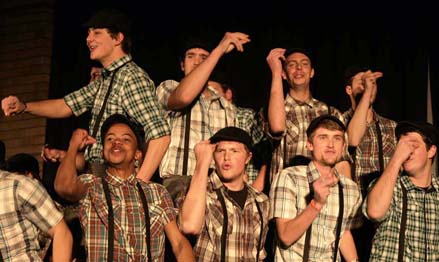Latest News Archive
Please select Category, Year, and then Month to display items
02 January 2025
|
Story Gerda-Marie van Rooyen
|
Photo Supplied
 Leading the research in South Africa is Prof Linus Franke from the Department of Soil, Crop and Climate Sciences.
Leading the research in South Africa is Prof Linus Franke from the Department of Soil, Crop and Climate Sciences.
Scientists are actively pursuing the successful breeding of diploid hybrid potatoes from inbred lines. This is expected to revolutionise potato breeding as it holds the key to rapid genetic progress. It will introduce new varieties for commercialisation through seed. Currently, existing potato variants have a gene that renders self-pollinated seeds infertile.
Prof Linus Franke, an academic in the Department of Soil, Crop and Climate Sciences at the UFS, is leading the research in South Africa. “This technology allows the production of genetically uniform potato seed that is easy to transport and largely disease-free.” He says this differs from conventional breeding whereby only vegetative propagation is possible due to tetraploid varieties in potatoes. It also risks carrying pests and diseases from one generation to the next – leading to the accumulation of pests and diseases with each round of multiplication.
Seed innovation
Prof Franke explains that Solynta BV, a seed company based in the Netherlands that produces potato varieties that can be grown from seed, has included South Africa in their research efforts because it is one of Africa’s largest producers and exporters. Through his academic relationship with Wageningen University and Research, a Dutch institution renowned for its agricultural endeavours and food production, the UFS became involved in researching hybrid potatoes grown from seed.
Diploid seeds containing two sets of chromosomes allow easier gene manipulation to increase predictability and speedier genetic progress. The breeding approach enables the incorporation of tolerance to pests, diseases, abiotic stresses (cold, heat, drought) and other desired genetic traits.
Although Prof Franke is optimistic about this research, he is not blind to disadvantages. “Potato seeds are tiny and have little energy reserves, making it harder to grow potatoes from seed than from tubers.” He says potatoes from seed will take longer to cultivate than tubers, as farmers need to grow plantlets from seeds first, adding six weeks to the growing period. “It is possible that commercial farmers can grow potatoes directly from seed. Alternatively, perhaps more likely, specialised growers will produce tubers of potatoes from seed; these tubers are then sold as seed tubers to other potato farmers, who then continue their normal practices of producing potatoes for the market from tubers.”
Financial benefits
Prof Franke says farmers have reason to get excited. “Seed potatoes will reduce input costs, as varieties with enhanced tolerance to pests and diseases require less pesticides. Planting one hectare of potatoes requires three to four tonnes of potato tubers, but only one 25 g packet of potato seeds.” Since potatoes are a more valuable commodity than maize, this technology might also increase farmers’ income potential.
Roosmaryn and Veritas – 2013 Kovsie Sêr winners
2013-08-05
|

|
The two winning residences will represent the university at the national Sêr finals at the North-West University on 31 August 2013.
Photo: Johan Roux
05 August 2013 |
Roosmaryn and Veritas will be the proud UFS representatives at the national Sêr competition, taking place at the Potchefstroom Campus of the North-West University on Saturday 31 August 2013.
These two residences emerged as the victors of the McDonald’s Bloemfontein Kovsie Kleinsêr competition on Saturday evening 3 Augusts. They will now proceed to compete for the national title against residence teams from the universities of Stellenbosch, Pretoria, Johannesburg and North-West.
Roosmaryn and Veritas had to battle it out against eleven other UFS residence teams before walking away with the coveted first prize. In the male division, Vishuis and Kagiso locked horns with Veritas in a titanic struggle to attained second and third place respectively. The two city residences, Sonnedou and Marjolein, achieved second and third position in the division for the ladies’ residences.
This year’s Kovsie Kleinsêr competition, which is a highlight on the Bloemfontein calendar, was characterised by fierce competition, top-class entertainment and loads of singing talent. Spectators could follow the action from three venues on the Bloemfontein Campus, with participants performing in the Scaena, Odeion and Kovsie Church.
The McDonald’s clown, Ronald McDonald, added boisterous fun to the proceedings in the Kovsie Church. The clown, the participants’ costumes and their vocal abilities were some of the hot topics discussed on the social network Twitter, where the competition ‘trended’ for some time.